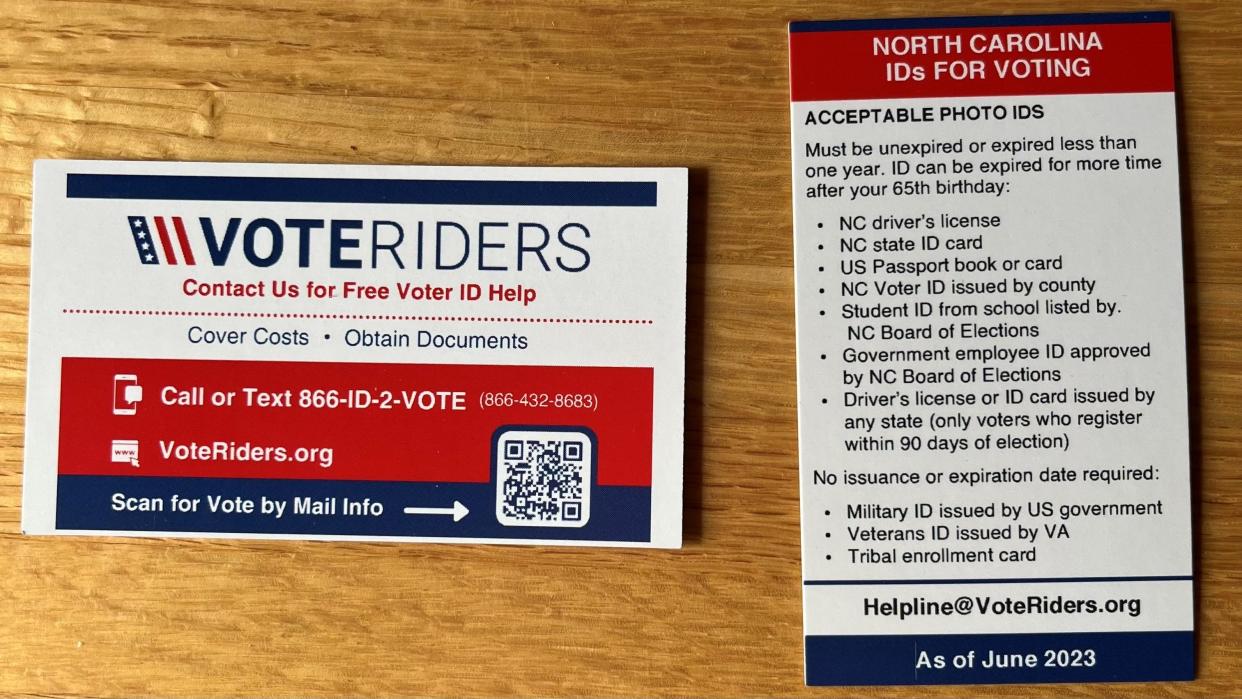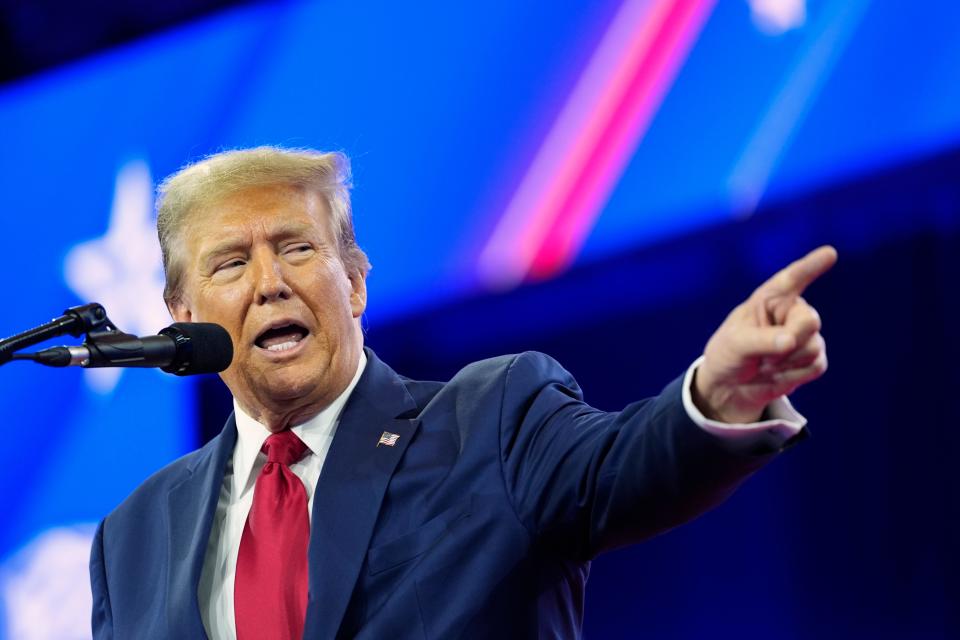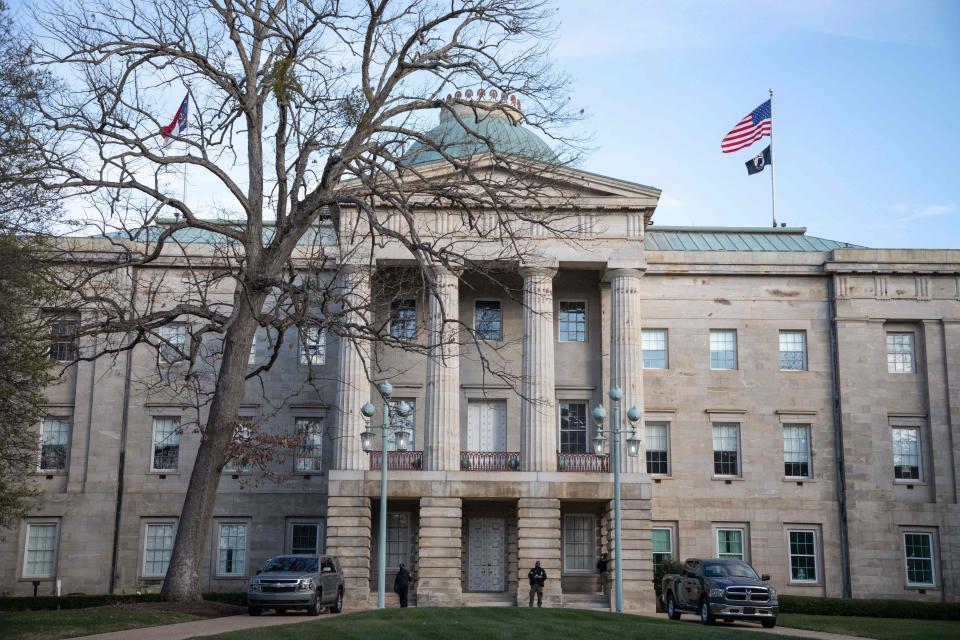Election integrity in NC: Will photo ID requirements help or hurt voter access?

North Carolina voters are required to bring a photo ID to the polls this election. Although the bill that made this law, SB 824, went into effect in 2023, this will be its first appearance in a presidential election.
The law is part of a larger goal North Carolina Republicans have been fighting for: stricter voter laws for stronger election security. One political science professor sees issues such as voter fraud and election integrity as an increasingly popular ticket item for North Carolina voters.
Democrats tend to find the stricter voter laws to be discriminatory and unnecessary.
Despite the partisan disagreement, voters will have to bring their photo IDs to the polls this election.
2024 primary election: When is the North Carolina primary? What you need to know before you vote.
How often does voter fraud happen?
A report from the North Carolina State Board of Elections shows that between 2015 and 2022, there were 674 referred cases of fraud, misregistration, double voting or election interference in the state. Twelve of those referred cases were attributed to someone impersonating a voter. Referred cases are investigated by board of elections officials, but they do not represent the legal outcome of a case.
Christopher Cooper, professor of political science and public affairs at Western Carolina University, said that parties can see the same data and come to opposite conclusions. Democrats say the instances of voter fraud are not significant enough to warrant a photo ID law that in turn limits access for voters and is discriminatory. Republicans say one instance of fraud could affect an election and therefore must be fixed.
For example, the Heritage Foundation, a conservative-leaning think tank that tracks instances of voter fraud, believes even small numbers of voter fraud could be the deciding factor in a close election. Thus, their website cites photo ID laws and restrictions on same-day and automatic voter registration as positive advancements toward a secure election.
Voter access scorecard: How does NC fare in voter access? It depends on who you ask.

Is fear of voter fraud a new phenomenon?
Cooper said he believes the topic of election security matters more to voters now than it ever has in the past.
“The GOP has been beating this drum for a number of years, and I think it’s gotten through to voters that they now have this concern,” Cooper said. “So you’ve got candidates running for office now that this is a major plank of their platform. And I think you just wouldn’t have seen that 10 years ago even if they might have held the same basic belief.”
He said Trump’s ‘Big Lie’ that the 2020 election was stolen played a significant role in this shift.

Are photo ID laws discriminatory?
Katelin Kaiser, voting rights lawyer for the Southern Coalition for Social Justice, works in election protection and said that the photo ID laws are disproportionately negatively affecting minorities, the elderly, students and low-income people.
The issue, Kaiser said, is in how accessible the IDs are in practice. People think bringing your driver’s license to the polls is not such a big deal, and that’s true for many, she said. But for others, the steps to obtain a photo ID are not so simple.
“Voting’s already hard enough for many people and when we add on more barriers, or more things that people have to check the box to be able to access the ballot, that builds up,” Kaiser said.
The Southern Coalition for Social Justice filed a lawsuit against SB 824 in the case of Holmes v. Moore. The complaint stated that the law was discriminatory and they noted that the state has a history of creating intentionally discriminatory voter ID laws. For example, in 2016, the Voter Information Verification Act was found to be “intentionally racially discriminatory” by the United States Court of Appeals for the Fourth Circuit in the case of N.C. State Conference of the NAACP v. McCrory.
Kaiser said she believes discrimination is still present in SB 824.
“Black people, in particular, and as well as students and other historically marginalized communities are more likely to lack an acceptable ID or face barriers,” Kaiser said.
Conversely, Carr said the issue of race is irrelevant.
“Democrats have developed these verbal tics for when they can't engage in a rational discussion, everything becomes ‘racist’ or ‘discrimination,’" Carr said. "It is ridiculous to think that voter ID laws have anything to do with racial discrimination.”
The North Carolina Supreme Court deemed SB 824 constitutional.
Early voting: Election 2024: What to know about early voting in North Carolina
Is this a partisan issue?
Photo ID requirements were introduced to North Carolina voters in 2018 where the proposal received 55% approval from voters.
New Hanover County Republican Party Chair Nevin Carr III said the photo ID requirements are necessary and common sense. Other processes like going through airport security or making a purchase with a credit card often require photo ID, so why would elections be any different, he said.
But everybody wants a fair election, not just Republicans, right?
That’s what Jill Hopman, chair of New Hanover County’s Democratic Party, thinks. Despite Hopman finding Republicans’ efforts to secure elections with voter photo ID laws and stricter mail-in laws a waste of time, she believes both parties want a fair election.
“Everybody wants safe elections; I just think that we take different approaches to it,” Hopman said. “I want a safe election where every single person has the right to vote and can vote regardless of party, color, age, class, whatever. And I think that they look at it like election integrity that they are trying to keep out anything questionable.”
On the national level, a USA Today/Suffolk University Poll revealed that Trump supporters were more likely to have doubts about the accuracy of the 2024 election than Biden supporters were. More specifically, 52% of Trump supporters had no confidence in the accuracy of election results for the 2024 election. Whereas 81% of Biden supporters said they were very confident about the 2024 election results accuracy.
What’s being done to educate voters?
The State Board of Elections launched a voter photo ID educational campaign this February to help North Carolinians understand the changes. It’s called “Bring it! Your ID. Your vote.”
Vote by mail: Election 2024: What to know about mail-in ballots in North Carolina
Aaron Troutman, elections specialist at the Henderson County board of elections, said they have received calls from voters asking about voter photo ID specifics, but that it hasn’t been overwhelming. On a weekly basis, their office gives out around three to four free photo IDs, a resource the board of elections offers to those who do not already have an acceptable form of photo ID, he said.
In terms of hiccups at the polls, there have not been many, he said.
“Not as many as you'd expect," Troutman said. "We’ve had to do a couple provisionals in which voters will be able to come back into this office and provide a valid ID. But as far as any major hiccups absolutely not. It's been a pretty smooth process.”
This article originally appeared on Asheville Citizen Times: Photo ID required for North Carolina voters in 2024 election
